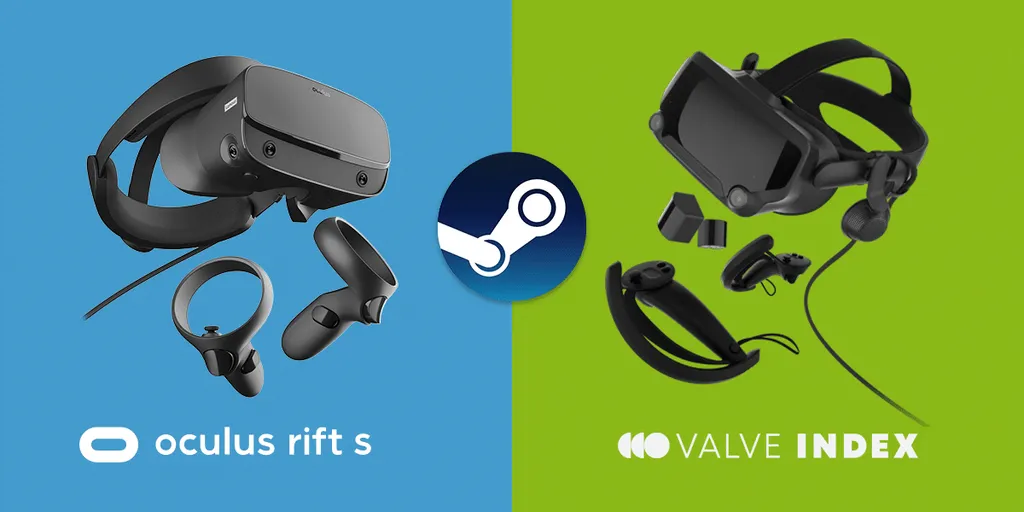Valve’s Steam Hardware Survey now includes any VR headset used in the past month, revealing that 1.29% of users have a SteamVR compatible headset.
UPDATE April 2: a few hours after the publication of this article, Valve modified the March Hardware Survey figures without explanation. The changes were minor, but we’ve updated this article to reflect the latest figures.
UPDATE April 3: Valve once again updated the survey, changing the ‘Steam users with VR headsets’ number. We’ve updated this article to reflect that.
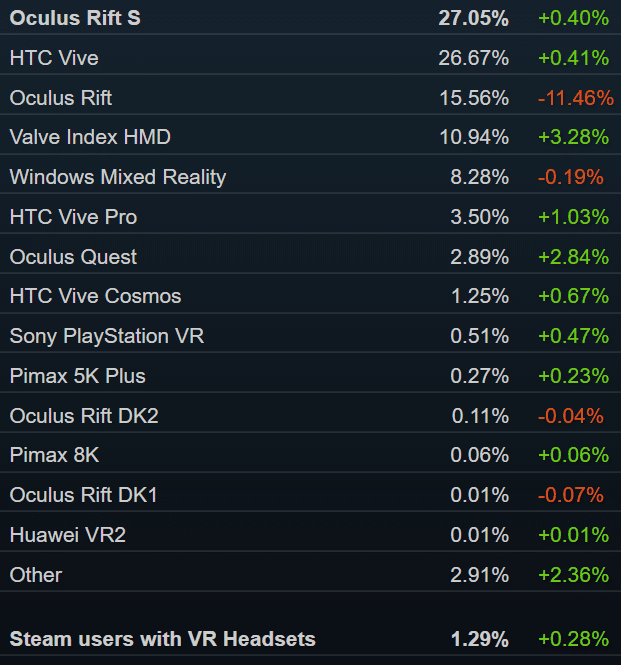
That may not sound like a lot. But comparing it to other currently niche items on the Hardware Survey shows PC VR is off to a great start.
In April 2019, Valve reported Steam reaching 90 million monthly active users. If we assume that figure has now grown to roughly 100 million, we can estimate the number of Steam users with a VR headset as roughly 1.3 million.
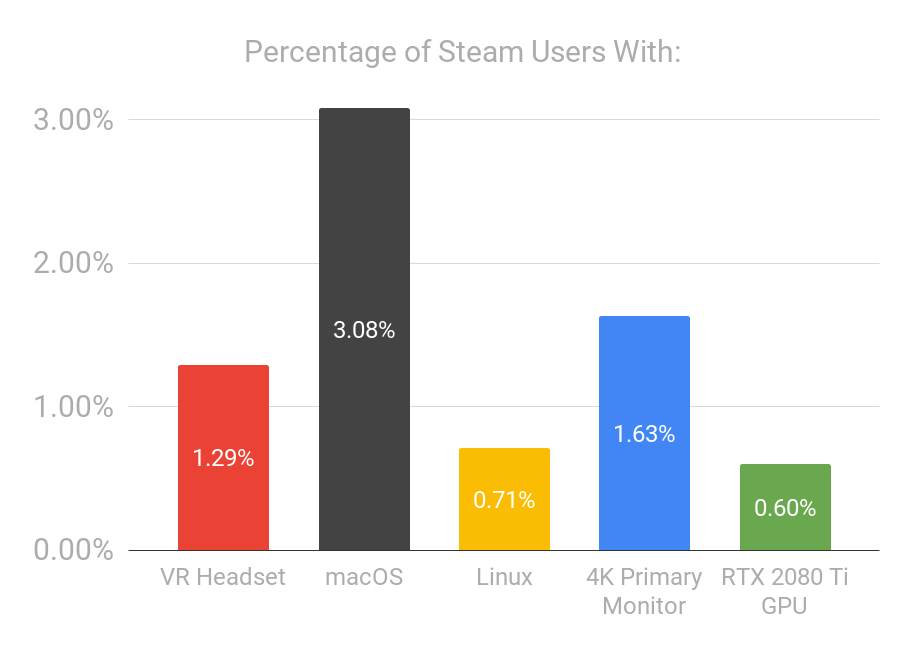
More Steam users have a VR headset than an RTX 2080 Ti or than use Linux. At current growth, it shouldn’t be long before more Steam users use a VR headset than have a 4K primary monitor.
Consumer VR is still a relatively new technology. The Oculus Rift and HTC Vive were released just four years ago, with the latter launching at $800 including controllers. Today you can get a similar experience for $400 or even lower. As hardware gets cheaper and better and more must-have VR games emerge, this percentage should steeply rise throughout this decade.
VR Headsets On Steam
Using the March Hardware Survey data and the estimate of 100 million Steam active users, we can arrive at what should be a decent estimate for how many of each headset are in use.
For newer headsets, this number should be somewhat close to how many were sold. Older headsets are more likely to be in storage or inoperable.
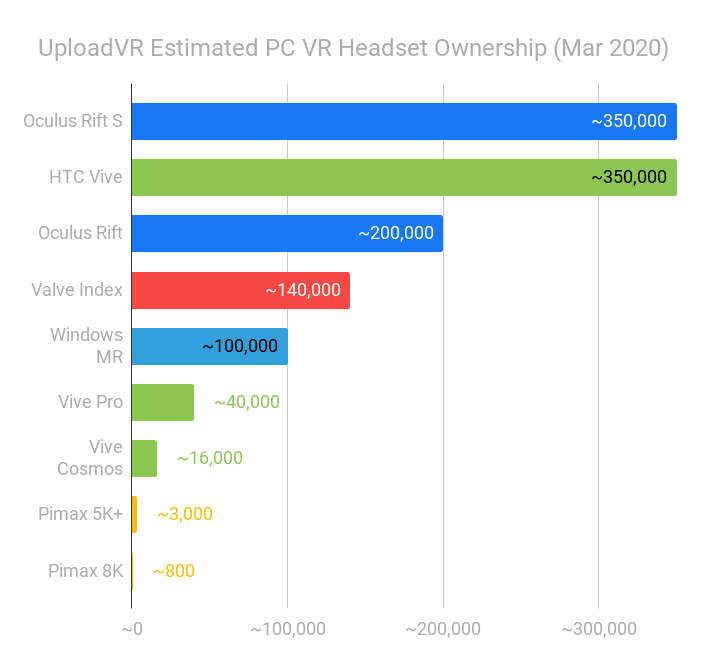
Just under half of the headsets on Steam are from Facebook’s Oculus Rift brand. The company’s newest PC headset Rift S is the most popular headset on Steam, used by more than a quarter of SteamVR users. The original Rift, once the most popular on Steam, is now used by 16% of SteamVR users.
HTC’s Vive brand is in second place, with almost a third of users. The vast majority of this comes from the original Vive launched back in 2016- the first consumer headset to offer room scale tracking & positionally tracked controllers. Today, roughly one quarter of VR headsets on Steam are still the original Vive.
HTC’s latest consumer headset, Vive Cosmos, is used by just 1.25% of SteamVR users. That’s less than than half the number for the Oculus Quest (2.9%), which isn’t even a native PC VR headset.
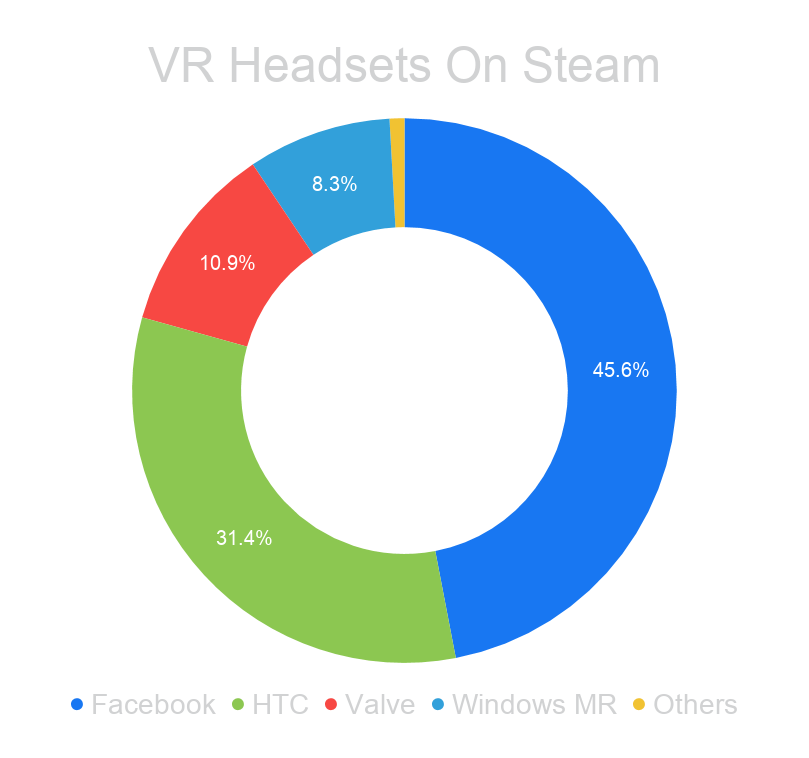
Valve’s premium Index HMD now represents 1 in 10 headsets on SteamVR. This is an impressive feat given the $1000 pricetag for the full kit. It could be seen as proof against Facebook’s product positioning which suggests they believe consumers aren’t interested in hardware at that price.
Microsoft’s Windows MR platform took an opposite approach, with many low cost headsets from different manufacturers. However despite continuous aggressive price cuts as low as $150, consumers just don’t seem interested, so they make up less than 1 in 12 headsets.
Pimax headsets now show up on the survey- specifically the 5K Plus and 8K, thought to be the most popular of the company’s many offerings. As suspected, these are fairly niche products, with even both together making up less than 1 in 300 SteamVR users.
In fact, more SteamVR users are rigging their PlayStation VR using third-party drivers to work with PC VR- roughly 1 in 200. This is achieved with drivers like Trinus or iVRy. But unless you’re just using it for cockpit games, you’ll also need a third party tracking service such as PSMoveService or Driver4VR. Keep in mind the quality of tracking often won’t be as good as on a PlayStation 4.
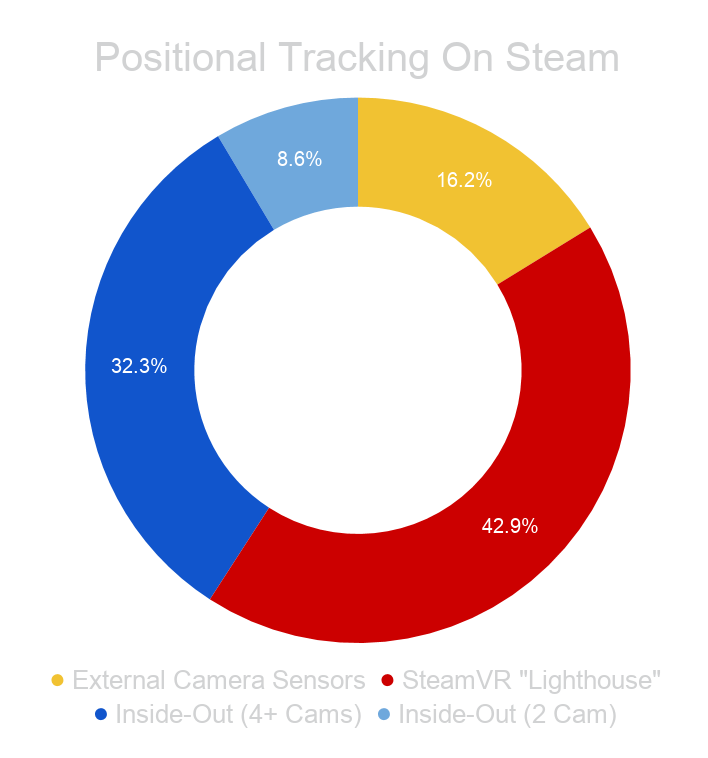
Inside-out tracking has enabled lower cost headsets and easier setup, accounting for the majority of VR headset growth since May 2019 thanks to the Rift S. However, 6 in 10 headsets on Steam are still tracked with external hardware thanks to the huge numbers of Oculus Rift and HTC Vives still in use.
The SteamVR “Lighthouse” tracking system enables interoperability between headsets and controllers. Owners of the original HTC Vive are able to purchase & use Valve Index controllers, for example. This could explain why the Vive is still used much more than the original Oculus Rift, for example.
We’ll Be Keeping Track
Because of the improvements to detection, the 1.29% can’t be compared to previous Steam Hardware Survey data. But UploadVR will continue to track the data over this year. We’ll keep you updated on the growth of PC VR over time.
Over the next few months, Valve’s “flagship” AAA title Half-Life: Alyx, and its incredibly positive reception across the games industry, may be a primary driver of this growth- assuming Facebook & Valve can ramp up to produce enough headsets to meet demand. We won’t, however, see the effect of Alyx on PC VR usage until the next report in May, according to Valve.

